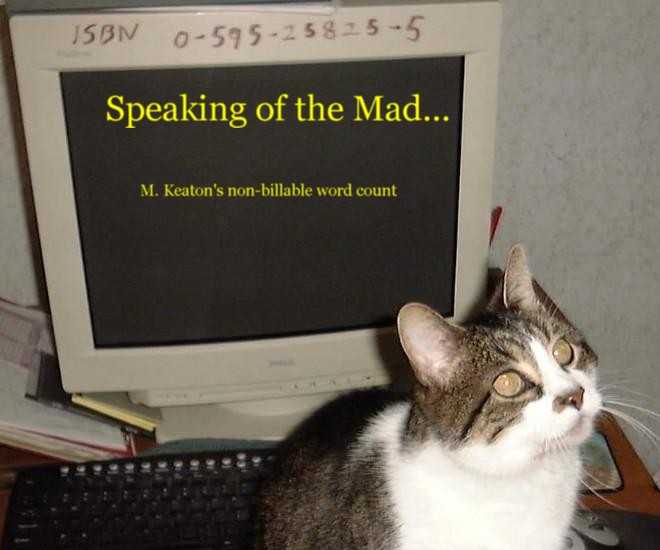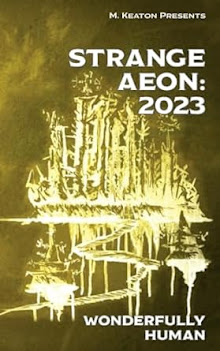There are public theologies and private thoughts. Likewise, there are core, vital doctrines and then there are those speculations that are not truly relevant in the grand scheme of Salvation. This is a private speculation based largely on two foundations: the fact that it seems intuitively correct and does not contradict anything extant in the Holy Writ; and a reasoned extension of the already-displayed character and consistency of God documented in the Holy Writ. These are one man’s thoughts in the long hours of the night and should not be considered in any way worthwhile doctrine or even subjects of debate (except, perhaps, where the reader may find the Holy Ghost prompting within—and at that point it is an issue between God and the reader).
2: Patrick’s Theophany
“In the beginning Elohim created the heaven and the earth.” So begins the Holy Scriptures of three religions; so begins history. From the beginning, God and His creation are inseparable. I reference this because this base assumption influences the way I think about everything that proceeds from it, including animals and the soul.
The concept that an omnipresent God was represented within every aspect of his creation was accepted as intuitively obvious until it was obscured by the over-legalization of the Jews. Early Christians, following the rigid Roman mindset of rationalization and materialism, also failed to recognize this greatest of testaments. It was not until St. Patrick that the early Church began to again recognize that creation itself was the greatest theophany—the ever visible physical presence of God among men. The wonders of creation—its complexities, its beauties, and its mysteries—are a Holy Scripture themselves speaking to man, on the most basic level, of the nature and constancy of God. It is a reaffirmation of natural (Noahchim) law and the law of conscience. (Let me pause to address a specific point of doctrine. Many schools of modern Christian thought believe that the law of conscience became obsolete with the advent of the Christ. This is patently untrue. Neither the law of conscience nor Judaic law passed away. The Christ Himself took pains to state that He had come to fulfill the law, not to do away with it.)
Although this entire discussion seems a digression, I feel the point needed to be made in order to establish the reasons that I believe physical reality, as well as the worlds of spirit and soul, is first and foremost governed by spiritual laws rather than physical laws. I say this as a scientist. Within the history of science it can be found that, when science and God appear to disagree, in the end, God proves to be correct. I do not mean God in the sense of whatever the prevailing human dogma is but, rather, God as He has demonstrated Himself throughout history both in Scripture and the constancy of His nature. Physics and metaphysics are two separate, complimentary studies; placing one above the other is an act of human hubris. God instituted physics and created the ‘laws’ of science; there is no contradiction because there is only one truth. Nevertheless, if there appears to be a conflict between the two, the spiritual presumptions are, in my experience, the more reliable ones (and, might I add, these areas of seeming conflict are the most gainful areas of study both for the theologian and the scientist).
This is how I view the underlying nature and prioritization of reality, and it colors all my further assumptions and deductions. St. Patrick understood; Augustine did not. The God of nature is the God of man. This is not an appeal to the worship of nature as a god nor the endorsement of obeahism, but it is an acknowledgement of one of the greatest, permanently available theophanies—a clear and omnipresent insight into the mind of God.
I realize that, in this regard, I run the risk of sounding like some odd form of Unitarian/Druid/Kabbalist/ Christian. This is not the case. My theology (and more importantly, my core belief) is effectively that of a traditional Anabaptist. More to the point, I believe that God dictated the Holy Scriptures and that He meant exactly what He said. In this, I place no man’s opinion over what is written in the Word. For the most part, I can be comfortably pigeonholed as one of those ‘hatemongering, legalistic, holiness-movement-throwback evangelicals.” But I also am, in some regard, a mystic (albeit a Christian mystic—the good St. Patrick and I have much in common). An acceptance of the mystic, of the unknown and unknowable mysteries that are not explained to man because it is not necessary for man to know, is part of an honest belief. The modern Church has come to accept the materialistic reductionist paradigm as though it were part of the Holy Writ rather than a secular human conceit. Again, I am a scientist but I am not a worshiper of science as the be all, end all ultimate answer of all things. There are things beyond our understanding; there are mysteries and things beyond our ken. That is not heresy; it is honesty.
[Note: Theophany is classically defined as a manifestation of God to man by actual appearance such as the giving of the Ten Commandments to Moses on Mt. Sinai or the Burning Bush. Materialism is a philosophy holding that matter is the only reality and that everything, even thought and will, can be explained only in terms of matter. As a consequence, it lends itself to the belief that comfort, pleasure, and wealth are the only and highest goals and values. When combined with the dehumanizing effects of industrialism, it is a philosophy of scant value and severe danger.]
Tuesday, June 2, 2009
Subscribe to:
Comments (Atom)




















